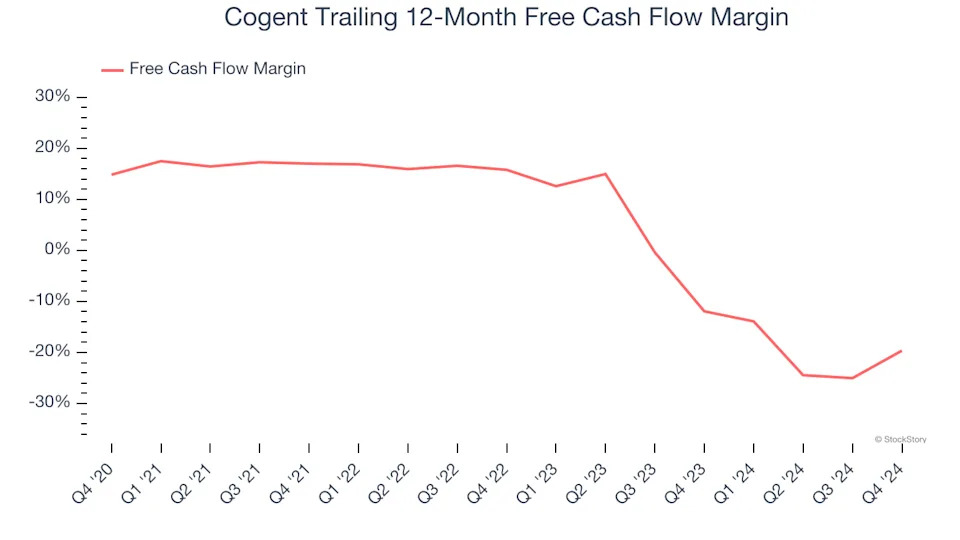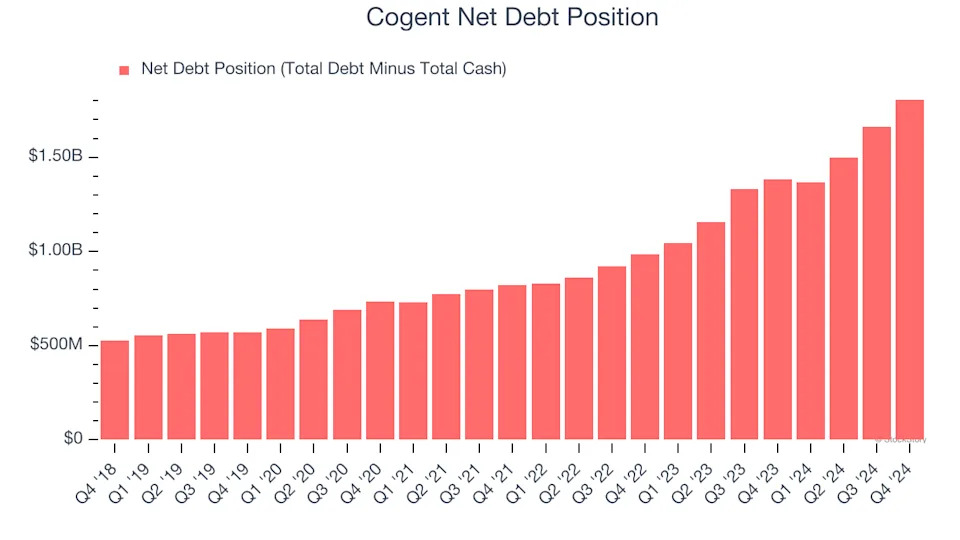
3 Reasons to Avoid CCOI and 1 Stock to Buy Instead
Cogent’s stock price has taken a beating over the past six months, shedding 36.5% of its value and falling to $52.28 per share. This might have investors contemplating their next move.
Is now the time to buy Cogent, or should you be careful about including it in your portfolio? Get the full breakdown from our expert analysts, it’s free .
Despite the more favorable entry price, we're cautious about Cogent. Here are three reasons why CCOI doesn't excite us and a stock we'd rather own.
Why Is Cogent Not Exciting?
Operating a massive network spanning 20,000 miles of fiber optic cable and connecting to over 3,200 buildings worldwide, Cogent Communications (NASDAQ:CCOI) provides high-speed Internet access, private network services, and data center colocation to businesses and bandwidth-intensive organizations across 54 countries.
1. Free Cash Flow Margin Dropping
Free cash flow isn't a prominently featured metric in company financials and earnings releases, but we think it's telling because it accounts for all operating and capital expenses, making it tough to manipulate. Cash is king.
As you can see below, Cogent’s margin dropped by 34.5 percentage points over the last five years. Almost any movement in the wrong direction is undesirable because of its already low cash conversion. If the trend continues, it could signal it’s in the middle of a big investment cycle. Cogent’s free cash flow margin for the trailing 12 months was negative 19.7%.

2. New Investments Fail to Bear Fruit as ROIC Declines
A company’s ROIC, or return on invested capital, shows how much operating profit it makes compared to the money it has raised (debt and equity).
We like to invest in businesses with high returns, but the trend in a company’s ROIC is what often surprises the market and moves the stock price. Unfortunately, Cogent’s ROIC has decreased significantly over the last few years. We like what management has done in the past, but its declining returns are perhaps a symptom of fewer profitable growth opportunities.
3. Short Cash Runway Exposes Shareholders to Potential Dilution
As long-term investors, the risk we care about most is the permanent loss of capital, which can happen when a company goes bankrupt or raises money from a disadvantaged position. This is separate from short-term stock price volatility, something we are much less bothered by.
Cogent burned through $203.6 million of cash over the last year, and its $2.03 billion of debt exceeds the $227.9 million of cash on its balance sheet. This is a deal breaker for us because indebted loss-making companies spell trouble.
